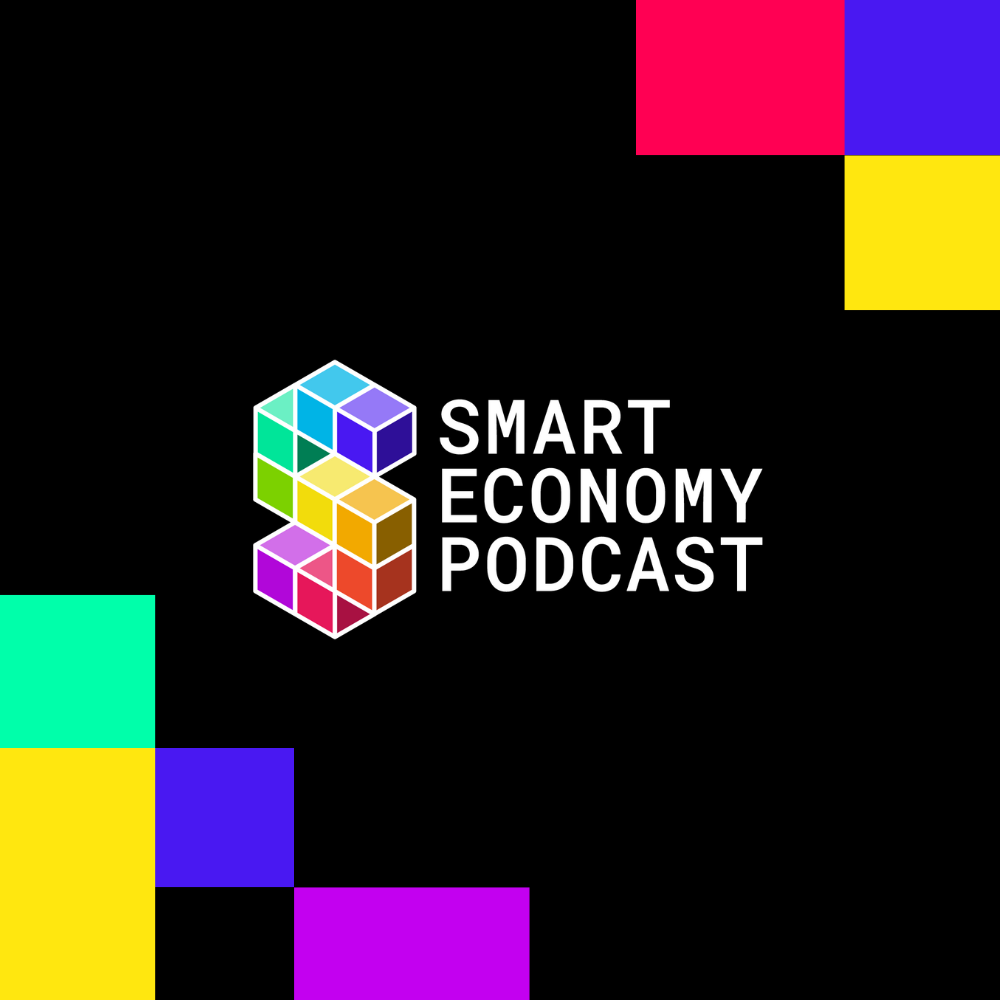The Rise of Self-Sovereignty: Reimagining Digital Asset Custody with Andrew Lawrence of Censo
August 16, 2023

In this episode of The Smart Economy Podcast, host Dylan Grabowski is joined by Andrew Lawrence, CEO and Co-Founder of Censo, to discuss his background in financial markets, how he recognized the utility of blockchain technology early on, and the challenges of key management. He delves into the importance of open-source development and the immutability of information stored on the blockchain.
In this episode of The Smart Economy Podcast, host Dylan Grabowski is joined by Andrew Lawrence, CEO and Co-Founder of Censo.
Join them as they:
- Talk about Andrew's background and early interest in blockchain
- Weigh in on self-sovereignty in holding digital assets
- Delve into Censo's self-custody and key management approach
- Shine a light on hierarchical key management
- Explore the role of mobile phones and biometrics in Censo’s ecosystem
- Discuss the pros and cons of building open-source solutions
- Delve into the future of self-sovereign digital asset management
Andrew Lawrence is the CEO and Co-Founder of Censo, a pioneering FinTech company that provides self-custody and private key management solutions for organizations to better manage and protect their digital assets. Andrew has a diverse background in financial markets and has been involved in the crypto space since 2012.
If you enjoyed this episode, make sure to subscribe, rate, and review it on Apple Podcasts, Spotify, and Google Podcasts; instructions on how to do this are here.
To stay in the loop, subscribe to our YouTube channel and follow us on Twitter/X, TikTok, and LinkedIn.
Episode Highlights:
[00:02:12] Recognizing the Power of Blockchain - Andrew’s journey into the world of blockchain began in 2012 when he stumbled upon the Bitcoin whitepaper. As a veteran of the financial markets, he immediately recognized the potential of blockchain technology. He saw a powerful parallel between the organization of blockchains and the mutual balances and credit systems used in traditional finance. This realization sparked his interest and set him on a path to explore the possibilities of blockchain technology.
[00:10:44] The Importance of Self-Sovereignty - Andrew strongly believes that the core principles of self-sovereignty and decentralization are imperative for the success and longevity of the crypto ecosystem. Historically, value was stored in tangible entities like gold or food, under the custody of a centralized entity. Today, digital assets offer inherent self-sovereignty. Yet, many organizations still opt for centralized solutions to manage their digital assets, due to regulatory constraints and the complexities surrounding key management. Although central custodians provide an easier, though potentially risky, solution, many choose them for their convenience. To truly harness the potential of the crypto movement, Andrew believes in the need for decentralization and self-sovereignty.
[00:25:04] Seedless Sovereignty in Key Management - Censo gives users and organizations total sovereignty over their keys and assets, while eradicating the complexities and vulnerabilities traditionally associated with key management. Their solution is built on open-source, decentralized software that runs on clients' hardware, ensuring full control and non-extractability of keys. This system interacts with on-chain policy engines and establishes a secure trust connection between keys and users' mobile devices, with encryption safeguarded by the phones' hardware security modules. The unique feature of Censo's approach is its seedless key management. If a user loses a key, it can be cryptographically reconstructed via a multi-approver transaction.
[00:29:09] The Pivotal Role of Mobile Phones and Biometric Authentication - The Censo ecosystem integrates mobile phones as the core of its security approach. According to Andrew, mobile phones are the most secure individual computing devices available due to their hardware security modules from which keys cannot be extracted. The Censo system ties a user's identity to key signing through biometric authentication. It operates in two parts: a web app for initiating transactions and mobile phones for signing and approving them. The biometric gating of the phone's secure enclave ensures the keys remain inaccessible and secure. This entire mechanism guarantees that sensitive activities demanding trust are controlled by the users via their phones or contracts.
Previous guests include: Paul Neuner, Founder and CEO of Telcoin; Aryan Sheikhalian, Head of Research at CMT Digital; David Hoffman, co-Founder and host of Bankless; Fabian Gompf, Chief Executive Officer of the Web3 Foundation; Kurt Hemecker, CEO of the Mina Foundation; Sunny Lu, co-Founder and CEO of VeChain Foundation; Joe Doll, general counsel at Magic Eden; Philippe Schommers, the Head of Infrastructure at Gnosis; and many others.
Check out our three most downloaded episodes:
- Are Stablecoins the Future of Money? Telcoin’s eUSD and becoming a Digital Bank with Paul Neuner
- The Darwin Cycles of Crypto: What Survives and Why with Aryan Sheikhalian of CMT Digital
- Media, Money, and Misunderstandings: Bankless Sets the Record Straight with David Hoffman
Attention all blockchain, crypto, and Web3 professionals! If you're a founder, CEO, or expert doing something innovative in this space, we're interested in speaking to you! Apply to be a guest on our platform and connect with our vibrant community of blockchain professionals: https://bit.ly/SEP-guest